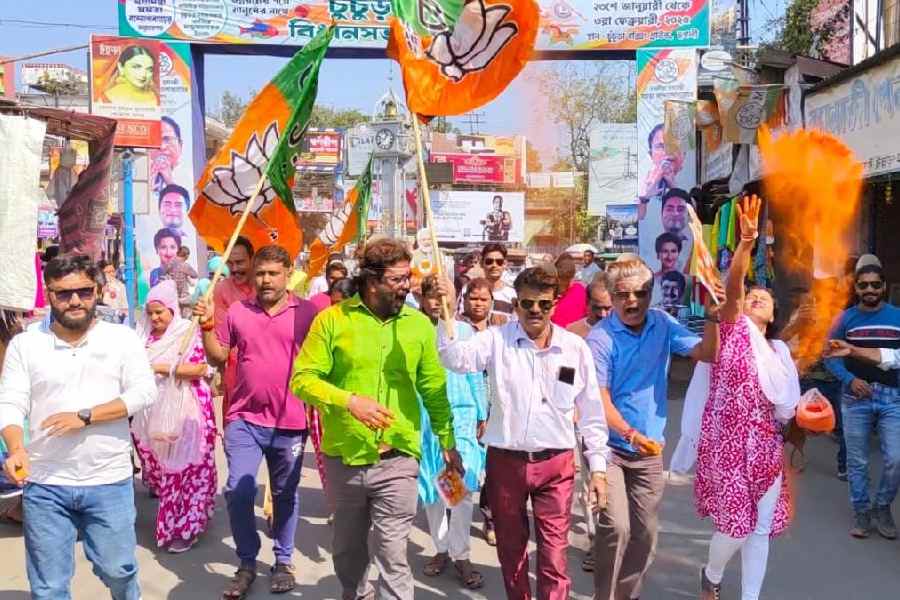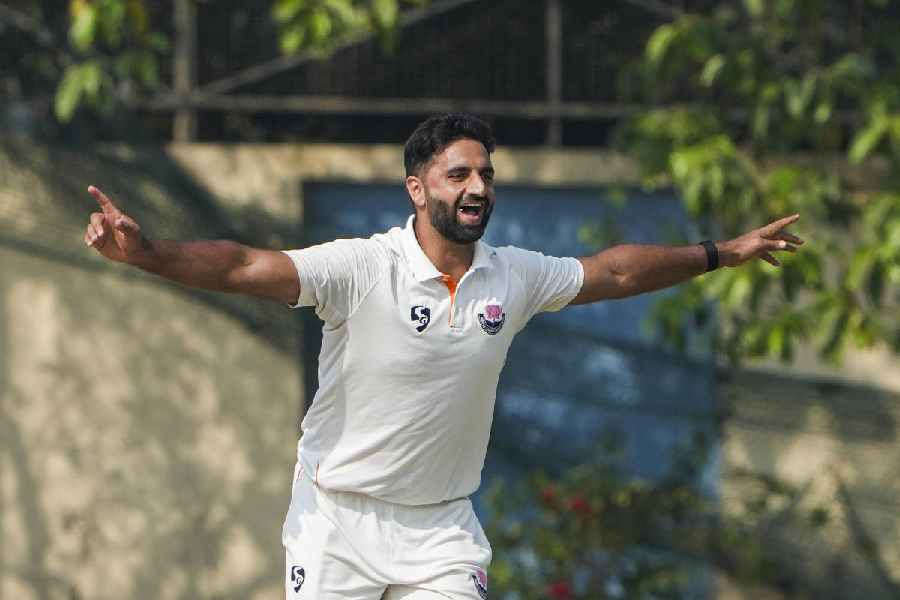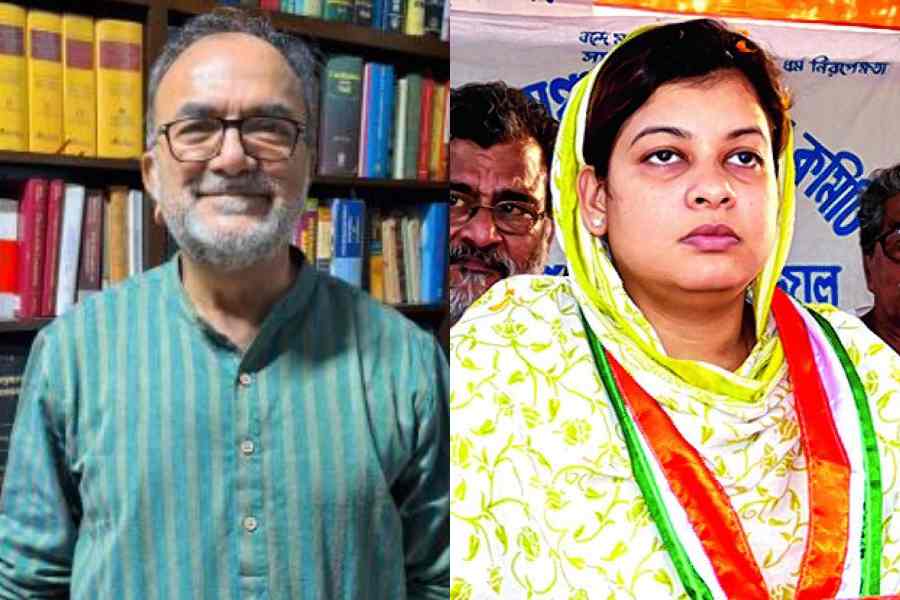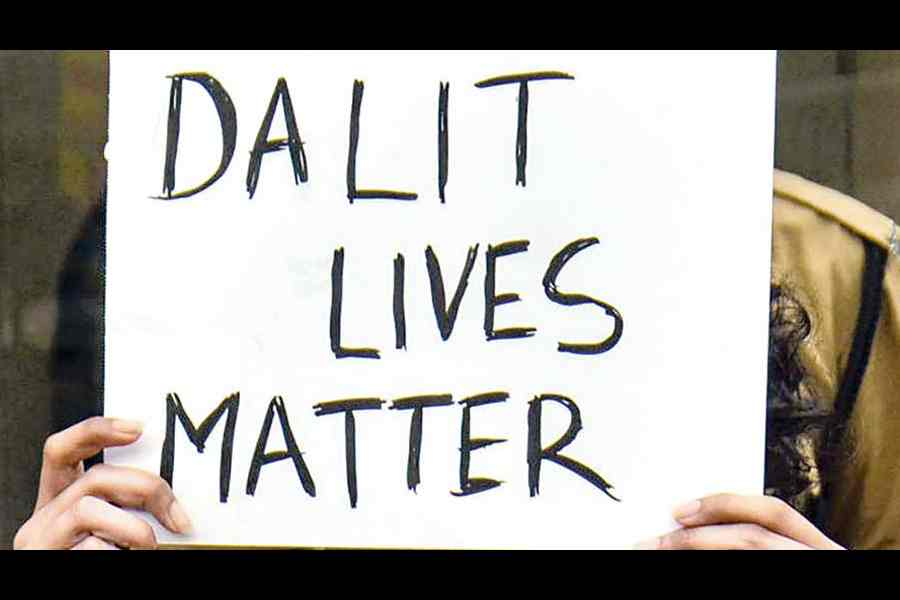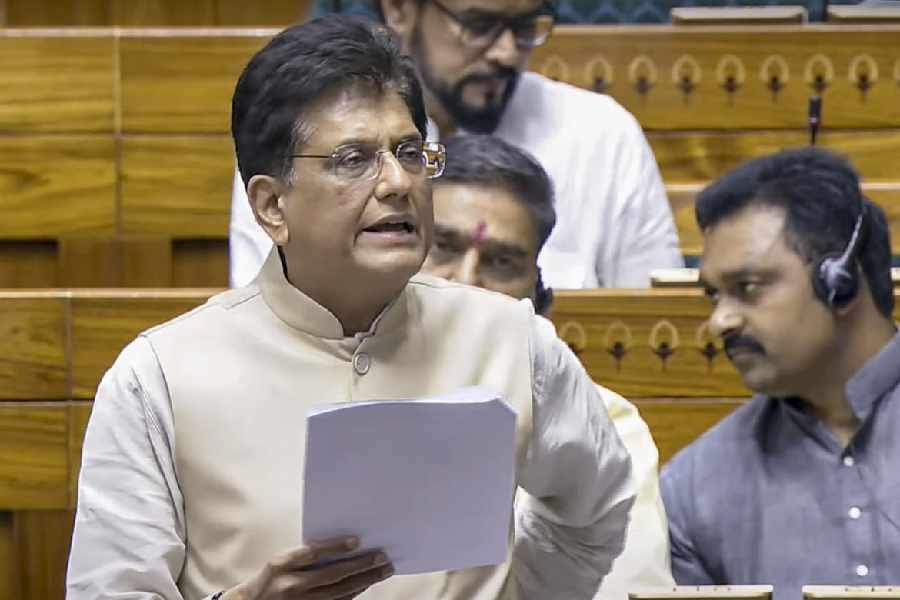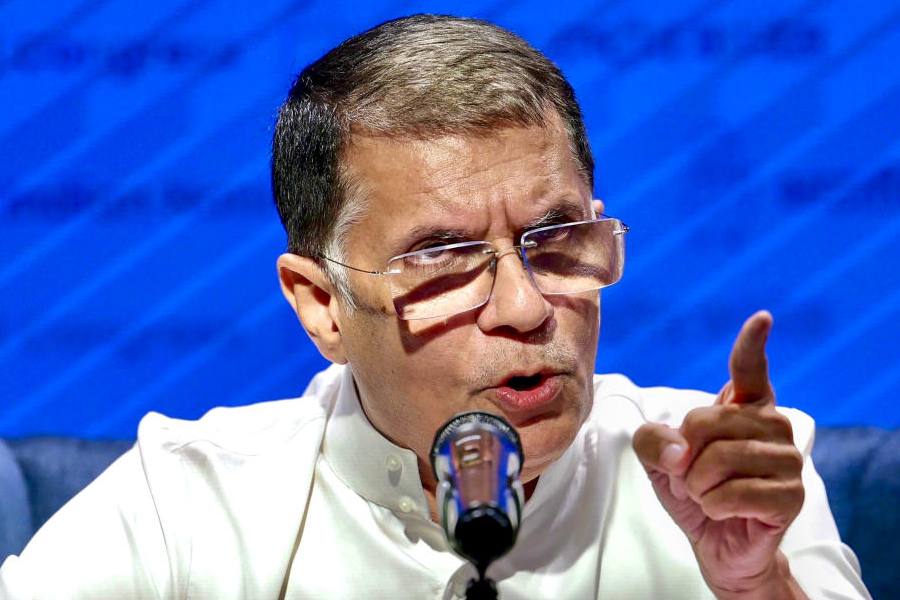In a never-before exercise in Bengal BJP, an app will take an "eye-blinking" photograph of the party's organisational members to weed out "ghosts".
With the Bengal polls scheduled for next year, the Bengal BJP is making a concerted effort to ensure that its booth-level committees are not filled with “ghost members”, as was the case during the 2021 Assembly and the 2024 Lok Sabha elections.
During the earlier two polls, while cross-checking the authenticity of its organisation at the grassroots, senior BJP leaders saw district leaders listed thousands of fictitious booth committee members.
Ideally, booth committee members are the backbone of any party, particularly in winning elections.
“Earlier, our office staff from Calcutta used to call those members but had bizarre experiences. Some people shown as members or even booth presidents on paper expressed surprise. Many even told us they were not BJP workers but worked for the Trinamool Congress. So our top leaders from Delhi have adopted a foolproof mechanism to ensure that no such ‘ghost’ members remain in our organisation,” said a senior BJP leader in Calcutta.
A BJP source said the cross-checking process has been launched with the mentoring of the party’s Bengal minder Sunil Bansal. Bansal had started cross-checking the authenticity of organisational members in Delhi before the Assembly polls that the party won earlier this year.
For this exercise, the BJP has launched a mobile app, SARAL, to manage its organisational system, including booth committees. Names of booths, their presidents and members have been registered in the app along with their mobile numbers.
The party has deployed 10,000 senior leaders, called e-bistaraks, and tasked them with cross-checking booth committee members outside their own jurisdictions. There are around one million booth committee members and presidents.
Each e-bistarak verifies about 100 members.
An e-bistarak meets a member in person, asks him or her to blink eyes and takes a photograph directly through the mobile app SARAL. Once the photograph is taken, a one-time password (OTP) is automatically sent to the member’s phone. After the OTP is fed into the app, the exact location of where the photograph was taken, including longitude and latitude, is recorded.
Party leaders have loosely termed the new cross-checking system the “eye-blinking verification”.
“At least a ghost can’t blink its eyes!” a BJP leader remarked.
“Earlier, we noticed cases where a party worker had been made a member of a booth located 10km or 20km away from his village. This location-recording process ensures that members are linked to correct booths,” said a senior BJP leader in Calcutta.
“The e-bistaraks will also upload the voter identity card number of each member to confirm authenticity,” he said.
In Bengal’s 80,000-odd booths, the BJP has formed booth committees in around 61,000. A BJP source said the target was committees in around 70,000 booths.
The party had been unable to form committees in the remaining 10,000 booths, where voters are almost entirely minorities.
“If we can form committees in 70,000 booths, it will give us a presence even in many minority-dominated booths,” a BJP leader said.
BJP state chief Samik Bhattacharya told The Telegraph: “We will complete forming our booth committees by December this year.”
A BJP source said that in 2019, when the party won an unprecedented 18 out of 42 Lok Sabha seats, it had committees in only 40,000 booths. There was no reverification process. In 2021 and 2024, that number increased to 50,000–55,000, but during cross-verification, only around 60 per cent members were found genuine.
“We have verified members in 53,000 booths. This time, while forming committees, we warned district leaders against fictitious names. Accuracy has risen to over 86 per cent. Wherever inappropriate names are found, they will be replaced with genuine party workers,” said a BJP leader.

